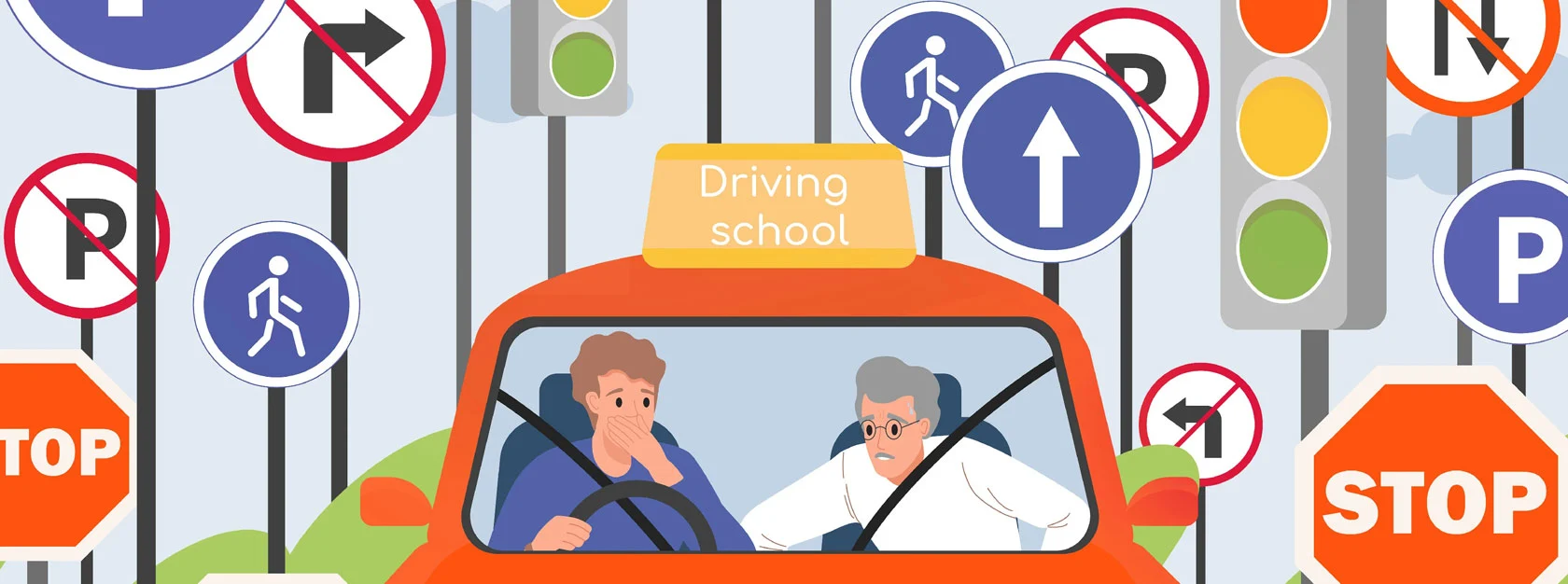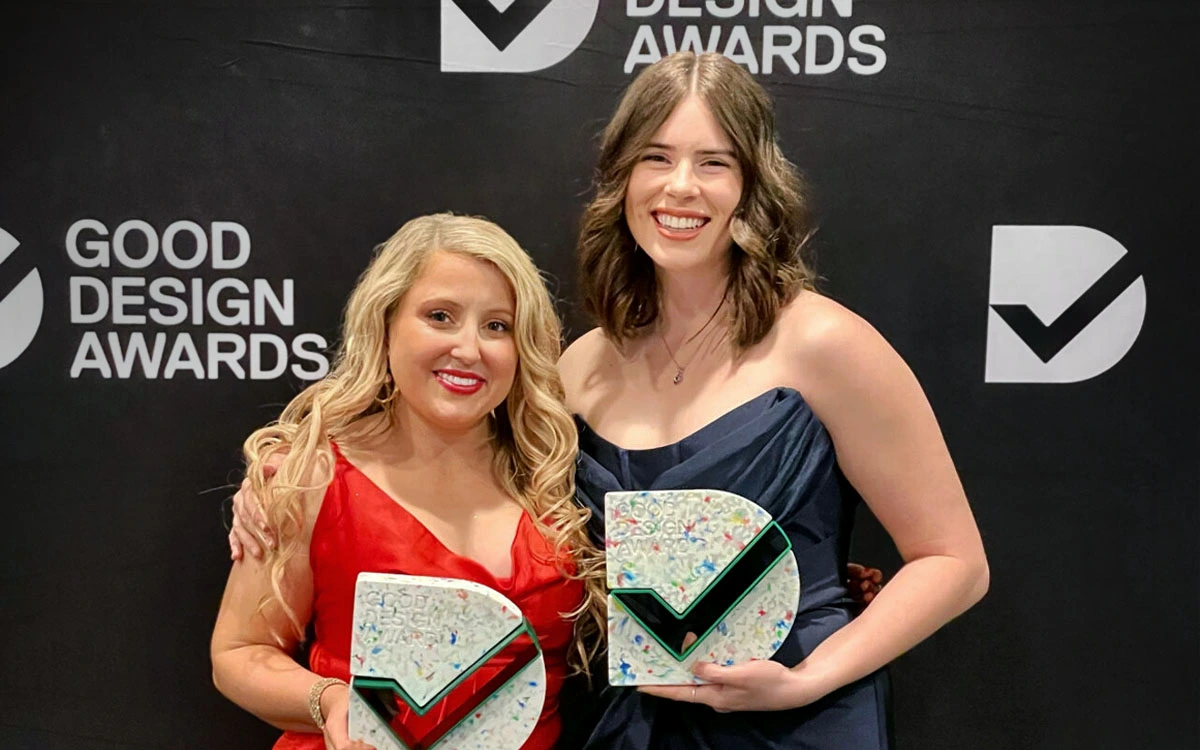
Length
6 min read
“This project is a great example of thorough engagement and input across the design process as you sought to make the driving test a better, more inclusive and accessible experience for all Queenslanders. The Jury commend the incredible vision of the project and look forward to seeing its impact evolve.”
The Good Design Awards Jury
We are honoured to be recognised as a winner in the Social Impact category for the 2023 Good Design Awards. This award demonstrates our passion for inclusive design and high-quality research to produce actionable recommendations for the Department of Transport and Main Roads (TMR). If implemented, these recommendations will enhance the driving test experience, making it more inclusive and accessible for all Queenslanders.
Our challenge: Co-designing the practical driving test experience for people with diverse needs.
To get your licence, you need to pass a practical driving test. Maybe you remember yours? The Queensland Department of Transport and Main Roads identified barriers in the practical driving test experience for individuals with diverse needs including First Nations people, people with disabilities, people who are neurodiverse, and those who are culturally and linguistically diverse. To understand these barriers, we co-researched and co-designed a new practical driving test experience.
Our goal was to co-design a more inclusive and accessible practical driving test experience for everyone, regardless of their background or abilities. We needed to ensure we could cater to the diverse needs of our co-designers (customers) in our workshops by always being ready to adapt our plans.
Our approach: Co-designing with a diverse group of people to achieve a more accessible and inclusive driving test experience.
The best way to design a new driving test experience is to incorporate the lived experiences of people who will benefit into the room. We collaborated with Queenslanders with diverse needs over multiple workshops: co-investigation, co-design, co-test planning, co-testing, and co-analysis. To support individual co-designer needs, we adapted our approach to ensure inclusive and comfortable environments. For example, hiring Auslan interpreters and adapting individual session activities to cater to different group dynamics.
In the co-investigation and co-design phases we conducted separate workshops with TMR customers, staff, and industry partners to understand all perspectives of the practical driving test process. It’s important that we included TMR staff and partners as co-designers too, because they’re also participants in the driving test process.
When the co-designers had an idea for a new direction to improve the driving test experience, we co-tested it with diverse groups to ensure it met a wide range of needs. We adapted the common approach of ‘user testing’ by asking participants to test prototypes with each other.
We also included the co-designers in the analysis stage to ensure their experiences were reflected in the findings. Some of the co-designers worked with us to share their perspectives on the project and the findings with TMR. For the co-designers, sharing their experiences was initially intimidating, especially for those who had never presented or told their stories before. However, the positive feedback from TMR made their contribution to the project extremely rewarding.
Design impact: We created a driving test with a better experience, and enabled independence, autonomy, and opportunities for all Queenslanders.
The driving test is an important part of keeping Queenslanders safe on the roads. But it’s also highly regulated and structured. Through this project we’ve contributed to making the driving test experience more inclusive and accessible. Diversity can be embraced in co-design projects to create design outcomes that reflect the broader community needs while keeping the same regulated outcomes.
This project is innovative for a government service, in that co-designers were involved in all aspects of design and research. The co-designers were called upon to participate in decision-making and contribute the findings.
It wasn’t just an input-gathering activity. The commitment to include and hear the voices of the co-designers from the start of the project was key. We believe this project can be used as a benchmark for future accessible and inclusive projects in government.
The outcome: A better, more inclusive, and accessible practical driving test.
We did a lot of work with the co-designers, and we worked with them to create a lot of different things to make that work visible.
Recommendations: There were 32 priority recommendations to improve the practical driving test experience in ways that will help everyone. Each touchpoint in the journey was carefully crafted to ensure customers have a seamless, logical and cohesive experience. Everything from the TMR website, emails and text reminders, test centre signage and staff, and even the first interaction with the driving examiner was co-designed with people who have lived experience. The recommendations also consider the importance of safety for everyone involved in the driving test – not just the person being tested, but the driving examiner and other road users too.
Customer personas: We created five customer personas to represent the kinds of needs and challenges faced by customers. This will help TMR to better understand and empathise with customers who have diverse needs in the future.
Journey map: We made a current state journey map showing the steps and challenges collected in the co-design workshops. The map shows what happens when customers apply for their learner licence, until they gain their provisional licence. The customer journey map highlighted challenges, opportunities, and areas where people need more support.
Storybook: We created a storybook to visually showcase the future-state experience, so we could get feedback from our co-designers.
The result: The proposed re-design would significantly change some long-standing aspects of the driving test experience. But these changes would also ensure the test is more accessible and safer for people with diverse needs, in turn making it safer for driving examiners, other TMR staff and other road users. Furthermore, a re-design of the practical driving test experience helps to enhance the department’s reputation, especially for individuals needing additional support. It also addresses concerns of those who may have had negative experiences in the past, such as failing their test. A more inclusive driving test experience can also contribute to safer roads, by promoting awareness, education, access to licencing opportunities and a more comprehensive evaluation of drivers, since TMR is considering their diverse needs and the changing landscape of road safety.
The highlight: Involving diverse customers in the development and creation of public services.
This project sets a new standard for government organisations to involve diverse customers in the development and creation of public services. Including customers and the people who administer services leads to more inclusive and effective services, promotes social cohesion and increases access to resources, while also making the service delivery better, easier, and safer. As a result, this contributes to a more prosperous future that values diversity and inclusivity.

Rebekah Nicholas and Brooke Royston holding Good Design Award Trophies
Client: Queensland’s Department of Transport and MainRoads (TMR)
Project team: Ben Kraal, Brooke Royston, Rebekah Nicholas
Relevant links: Good Design Award link QLD TMR
